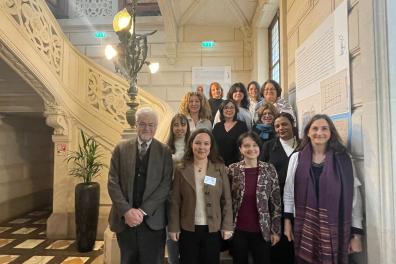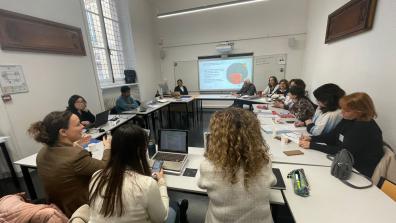CEFR training for a group of teachers as part of the LULaC project

Intensive training by CEFR experts
On January 29 and 30, three Turkish teachers from Inalco and six Ukrainian teachers from the University of Florence, Taras Shevchenko National University in Kyiv, and Inalco participated in training focused on using the Common European Framework of Reference for Languages in teaching lesser-used languages.
The training session at the Maison de la Recherche was conducted by Dr. Céline Peigné, Dr. Christelle Hoppe, and Prof. Jean-Claude Beacco, specialists in the CEFR and its application in digital language teaching.

A collaborative project for the digital teaching of lesser-used languages
The LULaC project, coordinated by Inalco in partnership with the universities of Cologne, Florence and Kyiv, aims to create a digital platform dedicated to learning lesser-used languages.
By October 2027, teachers will design teaching resources based on the CEFR and create two introductory online courses in Turkish and Ukrainian. This content will be made available on the digital learning platform of the European alliance EUniWell, of which the four LULaC partner universities are members.
Through these activities, LULaC is helping to promote plurilingualism and the digitisation of higher education in Europe.
Funded by the European Union. The views and opinions expressed are those of the authors and do not necessarily reflect those of the European Union or the French National Erasmus+ Agency. They do not engage the responsibility of the European Union or the granting authority.
